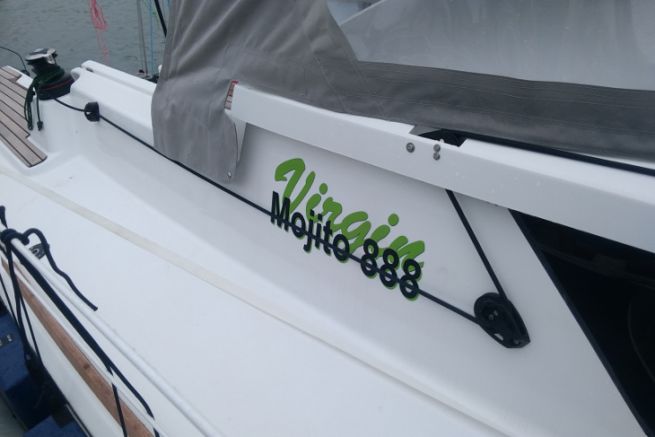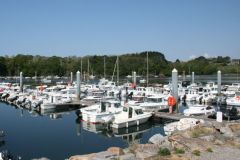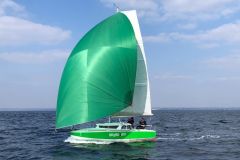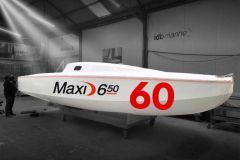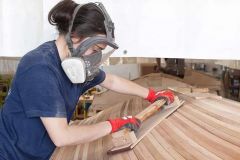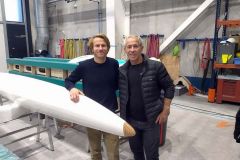From the study project to the construction of an ecological sailboat
The birth of the Virgin Mojito, the new IDB Marine shipyard's new yacht, is the result of encounters and a combination of circumstances. Irvin Kersuzan, a student in naval construction, contacted the Finisterian shipyard to submit a study project on biocomposites. It was then agreed to make some parts of a sailing boat from these materials of natural origin. But when the discussion was opened with the future owner of the boat, it turns out that he had met shortly before Roland Jourdain, the skipper-founder of Kaïros, a pioneer of biocomposites in yachting. He then proposed to build the boat entirely from biocomposites. The decision was accepted. "It's the kind of combination of circumstances that you have to know how to seize," enthuses Denis Bourbigot, head of IDB Marine.
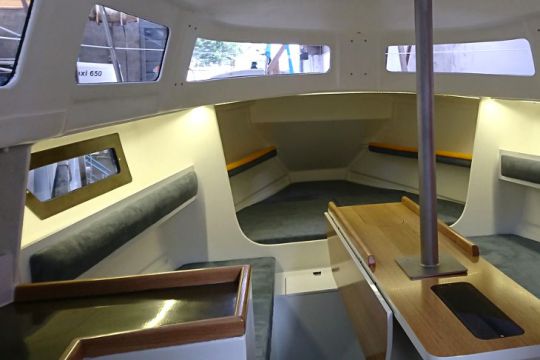
Inside the Virgin Mojito
Minimising the boat's carbon footprint
The choice of materials used was guided by the desire to limit the carbon footprint of the boat's construction. The new sampling has been validated with the company Kaïros. Fibreglass has been entirely replaced by flax fibre in the deck, hull and structure, except in areas subject to tearing, such as keel reinforcement or mast chainplates. Felt sandwich cores have been replaced by cork, while PVC foam is replaced by recycled PET. A traditional resin was used. "We know and control its behaviour well. Biosourced resins are only 30% biosourced. It's still a little early to make it worthwhile. What interests us is the global carbon balance. We know that flax and cork are produced in France and in Europe and that it takes 10 times more energy to manufacture fibreglass than flax. As for foam, PVC is much more harmful in manufacture than PET," explains Denis Bourbigot.
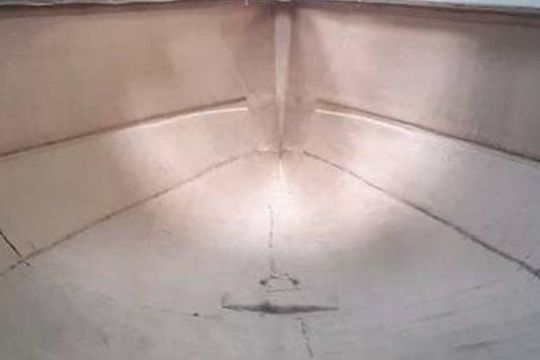
Draping the linen hull of the Virgin Mojito
Natural fibres that are more pleasant for operators
The interest of the environment is also that of the employees of the IDB Marine shipyard. The good surprise for the yacht builder's teams is the gain in working comfort. "The material works well and it's really different when it comes to dust. The fibres are natural and when you grind it's not allergenic," notes Denis Bourbigot.
Very acceptable price and weight differences
If the ecological aspect is not in doubt, it must be technically and economically bearable for the yachtsman. The Virgin Mojito weighs 150 kg more than its fibreglass cousin, a difference of 6% for a boat that weighs 2.6 tonnes. The price difference is 3,000 euros compared to the standard yacht at the list price of 104,000 euros, i.e. about 3%. Now available as an option, the biocomposite construction of the Virgin Mojito opens an interesting door to the development of more responsible boating.

